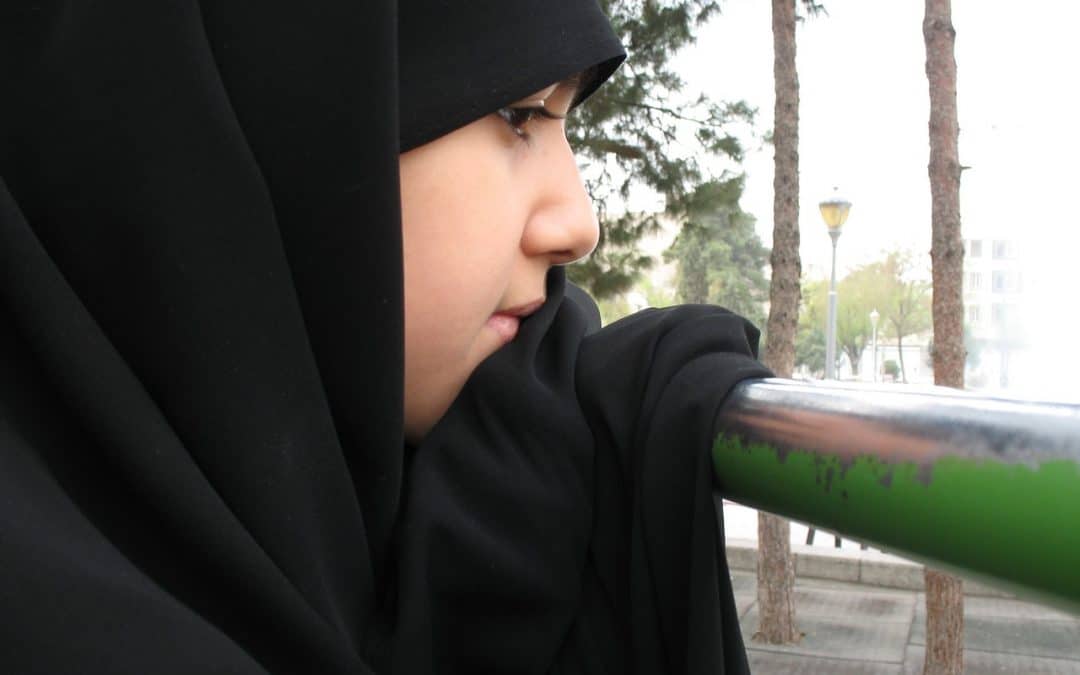Following the death of Qasem Soleimani last week opinions from politicians, pundits, the media and general public have been divided. The decision by President Trump to assassinate the commander of Iranian backed terrorism was roundly criticised in many quarters. Opponents of the President suggested this action would lead to war and had made the world a less safe place.
Soleimani’s death was mourned by some Iranians and celebrated by others. Interestingly callers into various talk radio shows, immediately after the news broke, were mainly supporting President Trump’s action. However, as the week progressed more calls came in from supporters of the Iranian regime. Maajid Nawaz noted that those tweeting support into LBC Radio had newly created accounts with few followers. He questioned whether these new accounts had been sponsored by the Iranian regime.
Who was Qasem Soleimani?
Up until just over a week ago, few people knew who Qasem Soleimani was. However, he was well known to worldwide intelligence services and many proscribed terrorist groups.
Born into poverty in 1957, Soleimani left school at 13 and worked in construction to help pay off his family’s debts. As he grew older, like many teenagers in Iran, he was caught up in the political fervency of his era. When the 1979 Iranian revolution occurred, replacing Shah Mohammed Reza Pahlavi with Ayatollah Ruhollah Khomeini, Iran’s political landscape changed from a pro-American monarchy to a wholly anti-American theocracy.
Khomeini’s mistrust of the existing Iranian national army, led to the formation of the IRGC (Islamic Revolutionary Guards Corps). Soleimani enlisted in the new army and displayed leadership qualities very quickly. He assisted in crushing a Kurd rebellion in the north west of Iran killing around 10,000 Kurds. When Sadam Hussein’s Iraqi forces sought to invade Iran in 1981 Soleimani served on the front line countering the attack.
However, his activities truly came to the fore when he was ordered to sabotage US efforts in Iraq following 9/11. Firstly he released members of the al-Qaeda terrorist group who had fled to Iran after the American invasion of Afghanistan. This was closely followed by him training Iraqi Shi’ite terrorists, providing them with deadly equipment designed to blow up US armoured vehicles. Soleimani’s activities resulted in around one thousand soldiers losing their lives in Iraq.
As Commander of the Quds Force, a branch of the Iranian Revolutionary Guard, Qasem Soleimani was a powerful political figure. Whilst some may consider him to be a great general, others knew him to be a clever propagandist. With his own network of lobbyists in many Middle Eastern and Western countries, he is responsible for the enrolment of his militants in Universities across the western world. This was made possible via Quds Force sponsorship of scholarships.
Close to the Supreme Leader of Iran, Ali Khamenei, it has been rumoured that Soleimani was being considered for promotion to President of Iran in 2021. His death came as a bitter blow to the Iranian regime which vowed to retaliate.
Why was Qasem Soleimani assassinated?
To US military commanders, spanning 2 generations, Soleimani was their most despised enemy. Indeed it is surprising that he lived until he was 62 given the enmity that existed toward him.
President Trump ordered the missile strike in which Soleimani was killed on 3 January 2020. It happened just outside Baghdad airport. The Quds Force general had been tracked on a flight from Damascus. He continued to be monitored by drones and other surveillance after landing at Baghdad and leaving the airport.
Following innumerable missions that had tested the patience of the President over 7 months including Soleimani’s involvement in:
- Shooting down an aircraft in June 2019
- Blasting holes in oil tankers
- Attacking the main oil facilities in Saudi Arabia by air
However, these actions were considered to be retaliation for economic sanctions that had been imposed on Iran by President Trump when he withdrew from the agreement, negotiated by Barack Obama, related to Iran’s nuclear program.
With each attack President Trump’s preference was always to talk rather than fight, an approach he used with North Korea’s Kim Jong Un.
This changed when on 27 December 2019 one of Soleimani’s militias attacked a US base in Iraq with rockets, killing an American contractor. Trump finally reacted and ordered a strike against the militia. US warplanes killed 25 of the terrorists. In retaliation Iran sent more militants, understood not to be armed, to attack the Baghdad US Embassy. Having set fire to the reception centre recollections of the attack on the US Benghazi consulate came to the minds of many in the White House. Further intelligence was also presented that Soleimani was planning more attacks and so the decision was made to eliminate him.
The aftermath
When the Iranian regime learned of the assassination, they vowed to retaliate. This prompted a barrage of criticism from his political opponents both in the USA and UK. They accused the President of starting a war and warned of huge repercussions.
The assassination occurred on Friday 3 January and on Tuesday 7 January Iran began firing rockets toward US bases in Erbil and Anbar in Iraq.
In the process of this attack a Ukrainian passenger plane fell out of the sky shortly after taking off from Tehran airport. There were 176 passengers on board and no survivors. Initially the Iranian regime lied about the circumstances in which the aircraft was brought down stating it was “human error”. How they could have known this without a full investigation and examination of the black boxes was beyond media imagination. It took until Saturday 11 January for Iran to admit that the plane has been “unintentionally” shot down having been mistaken for a “hostile” aircraft.
The President of Ukraine, Volodymyr Zelenskiy has demanded a full investigation into the incident and for those who did it to be brought to justice.
Certainly the predictions of war breaking out have not happened and according to military experts Iran is unlikely to start a war. It does not have the military might to take on the United States and its allies.
Meanwhile Iraq has asked US troops to leave the country.
Arrest of British Ambassador
Yesterday, the British Ambassador in Iran (Rob Macaire) was arrested in clear violation of international law. The reason was that he had attended an “illegal gathering” which was in reality a vigil for those who had died in the plane tragedy. The Iranian regime said they had arrested an unknown foreigner and released him as soon as they knew who he was.
Since the admission from the Iranians that they shot down the plane, there have been huge protests in Iran against the regime all over the country. Many protestors have been arrested but a tweet sent out by White House spokesperson, Sarah Huckabee Sanders, warns Iran that “the world is watching”.
Whereas those who are pro the Iranian regime have protested outside the British Embassy in Iran by burning Israeli and British flags.
Iran is a self-confessed, world leading state sponsor of terrorism. The loss of Qasem Soleimani may curtail its activities for a while.
However, since there is so much misinformation and fake news shared in so many places, it’s always best to seek the truth and not let identity politics get in the way of finding it.
Readers thoughts and comments are always welcome.


